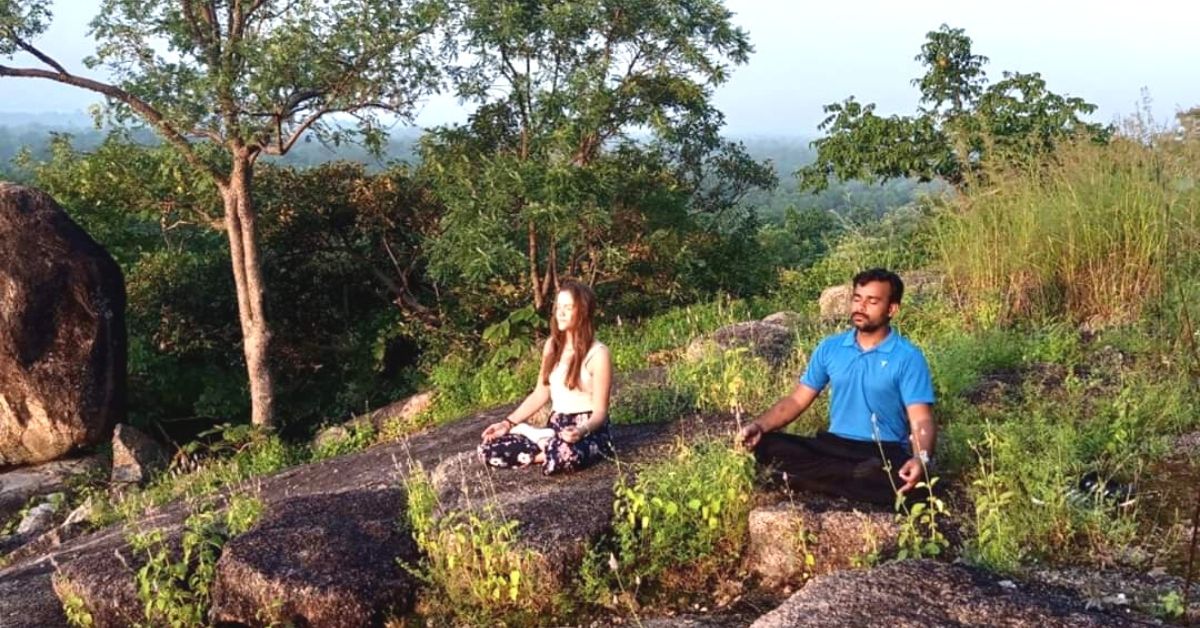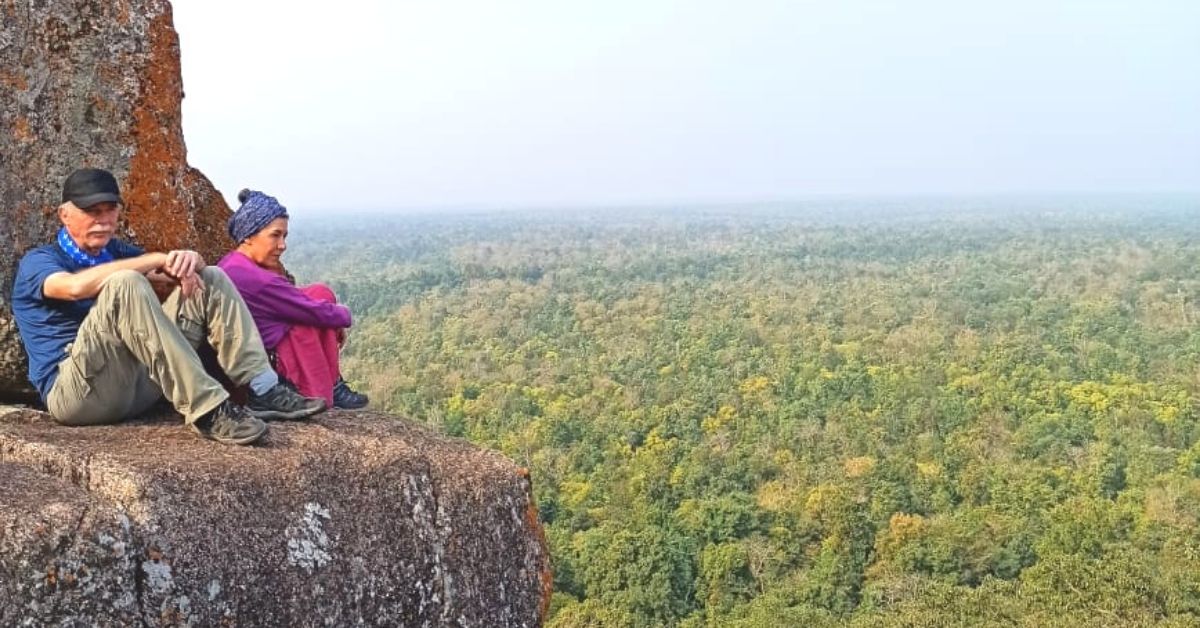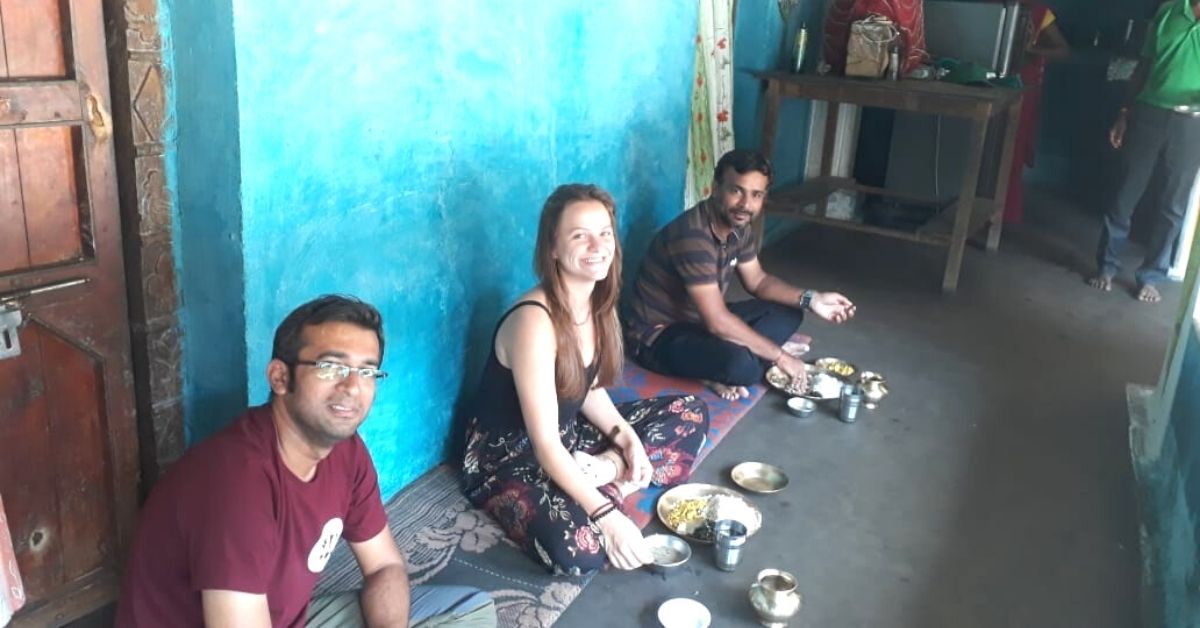In April 2019, villagers of Jabarra learned that they would gain rights over 5,352 hectares of forest land from the state forest department.
The picturesque village, located in the tribal belt of Dhamtari village in Chhattisgarh, has 57 houses, and is surrounded by lush green forest on all sides, with river Kajal flowing alongside. By gaining their Community Forest Reserve Rights (CFRR), Jabarra is the first village in the state to gain such ownership of the forest.
The 540 villagers, however, found it difficult to understand what difference it would make in their lives. “We always depended on the forest for our livelihood. The department had allowed us to use resources from the forest anyway. It didn’t make too much of a difference to us,” says Madhav Singh Markam, a resident of Jabarra.
But Madhav thanks IAS Rajat Bansal (32), who educated villagers about their rights and helped unravel the true potential of this new development. Efforts taken by the officer have helped villagers self-sustain and put Jabarra on the global tourism map. Since it has opened its doors to tourism, the village has attracted over 1,500 tourists from Poland, Japan, Australia, US, and other states of India.
“Villagers would cut trees from the forest and use the available natural resources daily. They always felt that the forest was theirs, and gaining rights over what already belonged to them seemed difficult to comprehend. However, access to resources had limitations, as the forest department governed the rights on behalf of the villagers,” says Rajat.
From a tiny hamlet to a global eco-tourism spot

Rajat, then district collector of Dhamtari, adds that they had to explain to the community that CFRR would give them complete authority to make decisions regarding usage of forest resources, without seeking permission from the forest department. Beyond imbibing awareness of forest rights, the officer also assured them that they would earn a decent livelihood. To help them understand better, he took some of them to Mendha Lekha of Gadchiroli in Maharashtra, the first village in India which had secured community forest rights.
“The forest department feared the villagers would exploit the resources and damage the environment. Hence, a plan had to be put into place to convince officials and address the worries they expressed regarding the tribal community,” Rajat says.
On why Jabarra was chosen, he says, “The village was ideal for people looking for respite from mundane urban life. It also came in the proximity of Bastar, Raipur and nearby regions, which formed a circuit. Making it part of an international tourist circuit would increase its visibility as a tourist destination. People in the village had a positive mindset. Such factors made it possible to develop Jabarra into a tourist spot.”
Creating the ecosystem

Rajat then roped in NGOs, social enterprises and a network of travel agencies to collaborate and create the ecosystem needed for the task.
Mohit Arya, founder of the Arya Prerna Samiti, a non-profit organisation, says Jabarra has 100 varieties of traditional and endemic medicinal plants. “Villagers use them for healing purposes. We decided to develop the area into a wellness tourism hub. A group of 20 villagers received training to get acquainted with the concept of homestays, guest coordination, and handling bookings,” he says.
The group was also trained in hospitality, basic English, eco-tourism, and preparing the business model, among other aspects. The village finally opened to tourists on 20 August, 2019. It offered yoga, meditation, local cuisine, a fish spa, nature walks, and clean air.
“The wellness spot does not involve any massage or use of oil. The village visit offers tours of the forest area, and treatment from traditional medicinal plants on ailments like diabetes, digestion issues and other diseases. Moreover, the weak network in the village offers a digital detox to the city dweller,” Mohit says.
It has taken a lot of effort for the village to come this far. “Villagers do not trust outsiders, and we were one of them. Moreover, they didn’t believe that someone outside the country would want to visit the area. But when visitors from the US and Switzerland came, the villagers’ self esteem was elevated,” says Jeet Singh Arya, founder of Jabarra Healers’ Group.
Jeet adds that it took time for villagers to also believe they would earn a good income from ecotourism. “They found it difficult to digest the fact that tourists preferred eating in leaf plates, rather than steel ones. It was a conflict of changing mindsets, as city dwellers were finding ways to adopt eco-friendly practices, and villagers are attracted to following an urban lifestyle,” he says.
A role model

Madhav says efforts taken by stakeholders have benefitted the village in multiple ways. “Earlier, a majority of the earnings went to the forest department. Now, we get the whole share and divide it in equal proportions. Villagers have a stronger bond with the forest and take efforts to protect it. There are regular meetings and discussions before even one tree is cut here,” he adds.
He also says that people work towards preventing forest fires, increase the forested area, and assist natural regeneration by maintaining strict control on and monitoring the extracted resources. “The village committee decides on when the honey is to be collected, the season during which medicinal plants are to be sourced from the forest, and what limitations are put on the quantity. There is no irresponsible cutting of trees anymore,” he adds.
Madhav says the village earned Rs 3.5 lakh in four months, from August until January 2020. “The nationwide COVID-19 lockdown affected the inflow of tourists. However, we have started allowing tourists in small numbers since February,” he says.
Rajat says Jabarra has become a role model for the state, and other villagers are taking the cue. “The reason for this initiative’s success is that it is primarily taken by the villagers, and other stakeholders support it enough so it sustains. The district administration has no direct role in it. Government officers like me keep changing, but that should not decide the fate of a good initiative,” he adds.
Edited by Divya Sethu
No comments:
Post a Comment